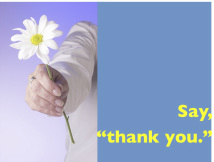- Home
- Awe (NEW 7/24)
- This ain't "happy-ology"...
- Philippiness 2/23 Science of Happiness - Class & Life
- SofH - class & life Spring 2022
- NEW - Time Confetti
- NEW - Happiness Hacks
- NEW - The Power of Fun
- Getting started
- Introducing happiness
- Main Activity Download Center
- 10 Minutes for Happiness (quick tasks)
- Happiness Haiku (consolidation)
- Positive brain chemicals
- New! 3 minutes for positivity
- Becoming Friends
- Savoring
- 5 photos (A savoring task with student projects)
- Flourishing
- Flow
- Positivity
- Laughter
- Meditation
- Mindfulness for kids
- Balloon toss (icebreakers)
- Song/lip dub (Marc's Ss): Pharrell William's HAPPY
- Activities from other teachers
- Don't laugh at me
- Videos of Marc's Talks
- Posters
- Bookshelf (NEW books listed)
- Links
- NUFS MA TESOL task page
- English Firsthand syllabus tie-in
- Monk for a Month (mindfulness)
- Misc PowerPoint downloads
- Contact Marc
- .
- InnovationsPosPsych downloads
- Positive Psychology in SLA (book)
- ..
- NEW BOOK
- test page
- songs for distance teaching
Say, "Thank you."

Thank you to the world How many languages can you say, "Thank you" in? Why to you want to say thanks to those countries? (I want to say gratzie to Italy for great art...and pizza!). (10 minutes for happiness)
My gratitude list. Based on on idea from Daniel Pink, each student thinks of one thing they are thankful for for each year of their age. Then they compare.
Gratitude letter Students think about someone they want to say thank you to (often a parent, a teacher or a coach). They write a gratitude letter, once in their native language and once in English. I encourage my students to actually give or send the L1 letter to the person they wrote it too. I've heard powerful stories of what those people said in (loving) response. I live in Japan where you usually don't express emotions so directly. So the Japanese version has a paragraph explaining that the student's English teacher asked him/her to write it. That makes it a bit easier. There is also a Korean version, a Bahasa version and a Vietnamese version (Note, if teachers in other countries want to translate that paragraph at the top of page two into other languages, I'd be happy to upload other versions.) (Thanks to Chang Suk Kyung, Astri Hapsari, and Mai Tang Ngoc & Yến Trần Thị Ngọc for the Korean, Bahasa, and Vietnamese versions :-).)
You're special (an award for you) is a thanking tasks. Students, in groups of 3 or 4, make "awards" to thank their partners. This is a good way to finish a course or term.
NEW Check out I really appreciate for a gratitude/savoring task that lower-level students can enjoy.
Also see "Writing and Sharing a Love Letter" by Curtis Kelly & Rex Tanimoto on the "Activities from other teachers" page.
My gratitude list. Based on on idea from Daniel Pink, each student thinks of one thing they are thankful for for each year of their age. Then they compare.
Gratitude letter Students think about someone they want to say thank you to (often a parent, a teacher or a coach). They write a gratitude letter, once in their native language and once in English. I encourage my students to actually give or send the L1 letter to the person they wrote it too. I've heard powerful stories of what those people said in (loving) response. I live in Japan where you usually don't express emotions so directly. So the Japanese version has a paragraph explaining that the student's English teacher asked him/her to write it. That makes it a bit easier. There is also a Korean version, a Bahasa version and a Vietnamese version (Note, if teachers in other countries want to translate that paragraph at the top of page two into other languages, I'd be happy to upload other versions.) (Thanks to Chang Suk Kyung, Astri Hapsari, and Mai Tang Ngoc & Yến Trần Thị Ngọc for the Korean, Bahasa, and Vietnamese versions :-).)
You're special (an award for you) is a thanking tasks. Students, in groups of 3 or 4, make "awards" to thank their partners. This is a good way to finish a course or term.
NEW Check out I really appreciate for a gratitude/savoring task that lower-level students can enjoy.
Also see "Writing and Sharing a Love Letter" by Curtis Kelly & Rex Tanimoto on the "Activities from other teachers" page.